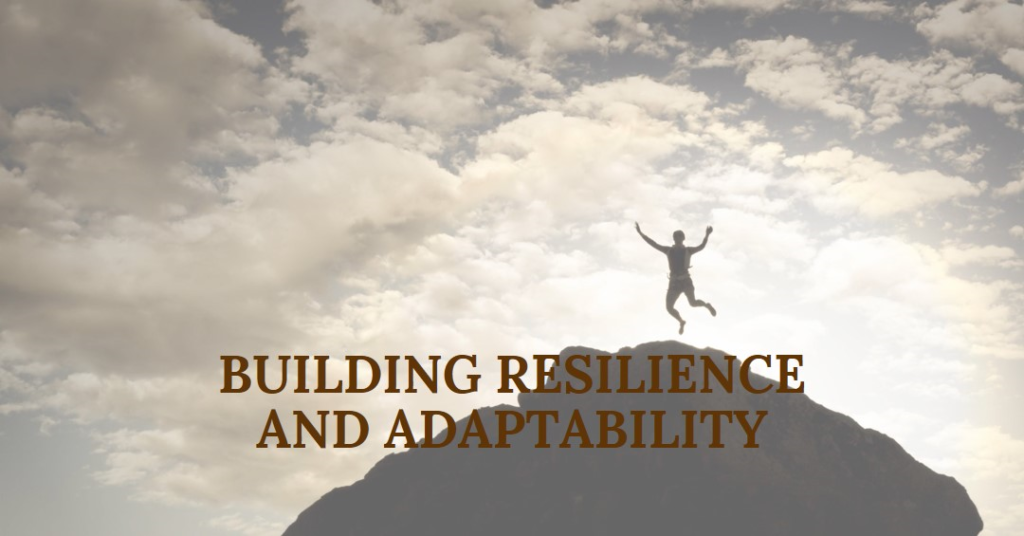In today’s fast-changing job market, technical expertise alone is no longer enough to stand out. Employers are looking beyond degrees and certifications to find candidates who bring strong communication, teamwork, adaptability, and problem-solving abilities to the table. These soft skills not only make employees more productive but also help businesses thrive in a world where collaboration and innovation are key.
So, what makes soft skills so important, and how can you develop them to stay ahead? Let’s explore.
1. The Rise of Automation and AI: Soft Skills Set You Apart

With rapid advancements in automation and artificial intelligence (AI), many technical tasks that once required human expertise are now being handled by machines. However, AI still cannot replicate the ability to think critically, communicate effectively, or lead a team.
Example:
A financial analyst might rely on AI tools to process data, but it takes strong analytical thinking and communication skills to present insights to executives in a way that influences decisions.
Takeaway: No matter how advanced technology becomes, soft skills will always be in demand.
2. Companies Value Team Players Over Lone Experts

Modern workplaces thrive on collaboration. Even if you’re an expert in your field, being able to work well with others, resolve conflicts, and contribute to a team environment is crucial.
Example:
A talented graphic designer who can create stunning visuals but struggles to accept feedback or collaborate with marketing teams may struggle to grow in their career.
Takeaway: Employers want professionals who not only perform well individually but also uplift those around them.
3. Strong Communication Skills Lead to Career Growth

No matter the industry, communication is a non-negotiable skill. Whether you’re writing emails, pitching ideas, or explaining a concept to a client, your ability to express yourself clearly can open doors to leadership roles and career advancement.
Example:
A junior sales associate who confidently presents solutions to customers and articulates business value is more likely to be promoted to a managerial position than someone who struggles to engage in discussions.
Takeaway: If you can communicate effectively, you can lead effectively.
4. Adaptability and Resilience: Essential for Career Longevity

Job roles, industries, and even entire business models are constantly evolving. Those who embrace change, learn new skills, and stay positive in uncertain situations have a significant advantage.
Example:
During the shift to remote work, employees who quickly adapted to digital collaboration tools, virtual meetings, and online project management stayed ahead, while others struggled to adjust.
Takeaway: Flexibility and a willingness to learn make you future-proof in any career.
5. Emotional Intelligence: The Key to Building Strong Relationships

Understanding and managing emotions—both your own and those of others—plays a huge role in workplace success. Whether handling a tough conversation, providing constructive feedback, or leading a team, emotional intelligence helps in building trust, improving workplace culture, and fostering collaboration.
Example:
A project manager who remains calm and supportive during high-pressure situations will gain the respect and loyalty of their team, leading to better project outcomes.
Takeaway: Great leaders don’t just manage tasks—they connect with people.
How to Develop Soft Skills
Soft skills aren’t something you acquire overnight. They require continuous effort and real-world practice. Here’s how to get started:
🔹 Improve active listening: Focus on understanding others before responding.
🔹 Seek feedback and act on it: Constructive criticism helps you grow.
🔹 Work on public speaking: Join clubs or take online courses to boost confidence.
🔹 Engage in team activities: Volunteering, group projects, or networking events can enhance collaboration skills.
🔹 Practice emotional intelligence: Stay mindful of how you react to challenges and manage workplace interactions.
Key Takeaways: Why Soft Skills Matter More Than Ever
In today’s competitive job market, technical skills might get you hired, but soft skills will help you thrive. Investing in these abilities can make the difference between simply having a job and building a long-lasting, successful career.
- Technology evolves, but human skills remain essential.
- Teamwork and collaboration are as important as individual expertise.
- Effective communication fuels career growth.
- Adaptability ensures long-term success.
- Emotional intelligence sets professionals apart.
Are you working on developing your soft skills? Let us know which ones have helped you the most in your career!

